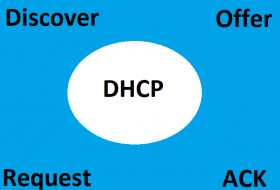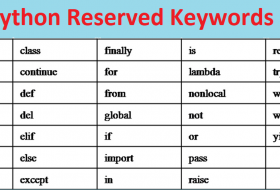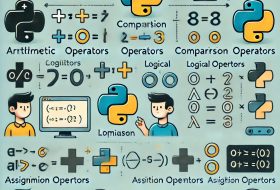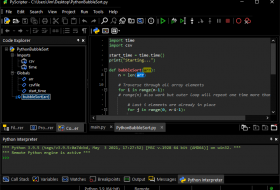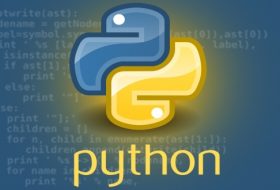Table of Contents
- Exploring the Benefits of Python Over Other Programming Languages
- Comparing Python and Java: Which Language is Best for Your Project?
- Pros and Cons of Python vs. C++
- Exploring the Advantages of Python Over Other Scripting Languages
- Comparing Python and Ruby: Which Language is Right for Your Project?
Exploring the Benefits of Python Over Other Programming Languages
Python vs other languages – Python is a powerful and versatile programming language that has become increasingly popular in recent years. It is used in a wide variety of applications, from web development to data science and machine learning. Python is easy to learn and use, making it an ideal choice for beginners and experienced developers alike.
Python offers many advantages over other programming languages. For starters, it is an interpreted language, meaning that it does not need to be compiled before it can be run. This makes it much easier to develop and debug programs, as errors can be identified and fixed quickly. Additionally, Python is a high-level language, meaning that it is easier to read and understand than lower-level languages such as C and Java.
Python is also highly extensible, meaning that it can be used to create a wide variety of applications. It has a large standard library that includes modules for web development, data science, and machine learning. Additionally, there are many third-party libraries available that can be used to extend the functionality of Python.
Python is also highly portable, meaning that programs written in Python can be run on any platform. This makes it ideal for developing applications that need to be used on multiple platforms. Additionally, Python is open source, meaning that it is free to use and modify. This makes it an attractive choice for developers who are looking for a cost-effective solution.
Finally, Python is a great choice for developing applications that need to be highly scalable. It is designed to be able to handle large amounts of data and can be used to create applications that can be used by millions of users.
Overall, Python is a powerful and versatile programming language that offers many advantages over other languages. It is easy to learn and use, highly extensible, portable, and open source. Additionally, it is highly scalable, making it an ideal choice for developing applications that need to be used by large numbers of users.
Check out Python.org for another take
Comparing Python and Java: Which Language is Best for Your Project?
When it comes to choosing the right programming language for your project, it can be difficult to decide between python vs other languages like Java. Both languages have their own unique advantages and disadvantages, so it’s important to consider your project’s specific needs before making a decision.
Python is a great choice for projects that require rapid development and prototyping. It’s easy to learn and has a wide range of libraries and frameworks that make development faster and easier. Python is also great for data analysis and machine learning projects.
Java is a more traditional language that is used for a wide range of applications. It’s a great choice for projects that require scalability and performance. Java is also great for enterprise applications and large-scale projects.
Ultimately, the best language for your project will depend on your specific needs. If you’re looking for a language that is easy to learn and allows for rapid development, Python is a great choice. If you’re looking for a language that is more traditional and can handle large-scale projects, Java is the way to go.
Pros and Cons of Python vs other languages like C++
Python and C++ are two of the most popular programming languages in the world. Both have their own advantages and disadvantages, so it’s important to understand the differences between them before deciding which one to use.
Pros of Python:
Python is a high-level language, meaning it is easier to read and write than C++. It also has a large library of pre-written code, so you don’t have to write as much code from scratch. Python is also great for rapid development, as it is easy to learn and use.
Cons of Python:
Python is not as fast as C++, so it may not be the best choice for applications that require a lot of processing power. It also has a limited number of libraries, so you may not be able to find the exact library you need for a specific task.
Pros of C++:
C++ is a low-level language, meaning it is more powerful and efficient than Python. It is also faster, so it is better suited for applications that require a lot of processing power. C++ also has a large library of pre-written code, so you don’t have to write as much code from scratch.
Cons of C++:
C++ is more difficult to read and write than Python, so it may not be the best choice for beginners. It also has a steep learning curve, so it may take longer to learn than Python.
In conclusion, both Python and C++ have their own advantages and disadvantages. It’s important to understand the differences between them before deciding which one to use. If you’re a beginner, Python may be the better choice, as it is easier to read and write. If you need a lot of processing power, however, C++ may be the better choice.
Exploring the Advantages of Python Over Other Scripting Languages
Python is a powerful and versatile scripting language that has become increasingly popular in recent years. It is used for a wide range of tasks, from web development to data analysis. Python is often compared to other scripting languages, such as JavaScript, PHP, and Ruby. While each language has its own strengths and weaknesses, Python has some distinct advantages over the others.
First, Python is easy to learn and use. Its syntax is straightforward and intuitive, making it a great choice for beginners. It also has a large and active community of developers who are willing to help newcomers. This makes it easier to find answers to questions and get help with coding problems.
Second, Python is highly versatile. It can be used for a variety of tasks, from web development to data analysis. It is also compatible with many different operating systems, making it a great choice for cross-platform development.
Third, Python is fast. It is an interpreted language, meaning that it does not need to be compiled before it can be run. This makes it much faster than languages that require compilation.
Fourth, Python is open source. This means that anyone can access the source code and modify it to suit their needs. This makes it easier to customize and extend existing code.
Finally, Python is secure. It has a built-in security system that helps protect against malicious code. This makes it a great choice for applications that require a high level of security.
Overall, Python is a great choice for scripting languages. It is easy to learn and use python vs other languages, highly versatile, fast, open source, and secure. These advantages make it a great choice for a wide range of tasks.
Comparing Python and Ruby: Which Language is Right for Your Project?
Are you trying to decide between Python vs other languages like Ruby for your next project? Both languages are popular and powerful, but they have their own unique strengths and weaknesses. In this article, we’ll explore the differences between Python and Ruby to help you decide which language is right for your project.
Python is a general-purpose programming language that is widely used for web development, data science, and scripting. It is known for its readability and ease of use, making it a great choice for beginners. Python is also highly extensible, allowing developers to add new features and functionality to existing code.
Ruby is an object-oriented programming language that is often used for web development. It is known for its flexibility and expressiveness, making it a great choice for experienced developers. Ruby is also highly extensible, allowing developers to add new features and functionality to existing code.
When it comes to performance, Python is generally faster than Ruby. Python is also better suited for large-scale projects, while Ruby is better for smaller projects. Python is also better for data science and scripting, while Ruby is better for web development.
Ultimately, the choice between Python and Ruby depends on your project’s needs. If you’re looking for a language that is easy to learn and use, Python is a great choice. If you’re looking for a language that is highly extensible and expressive, Ruby is a great choice. Whichever language you choose, you’ll be able to create powerful and efficient applications.
Have a look at our Python Variables post


